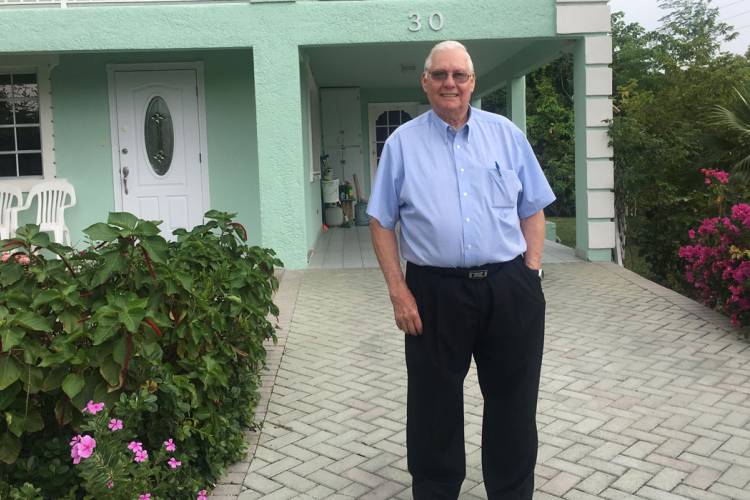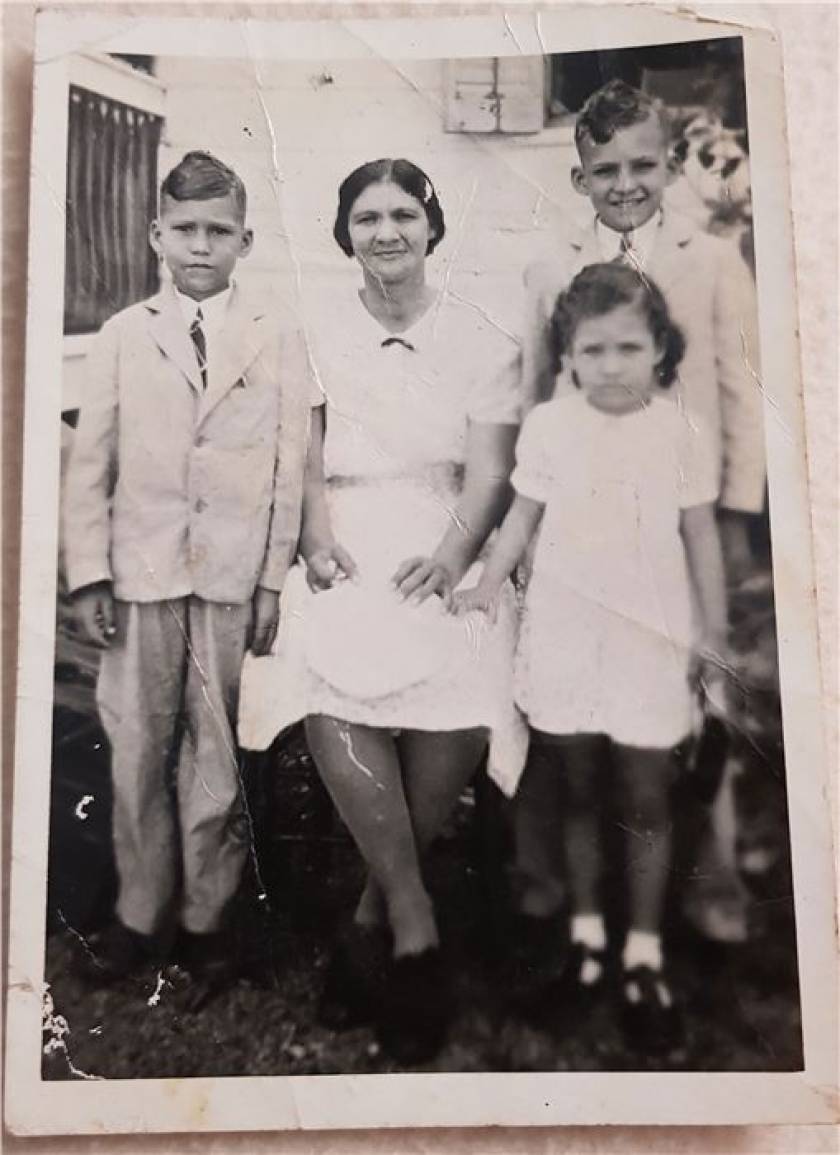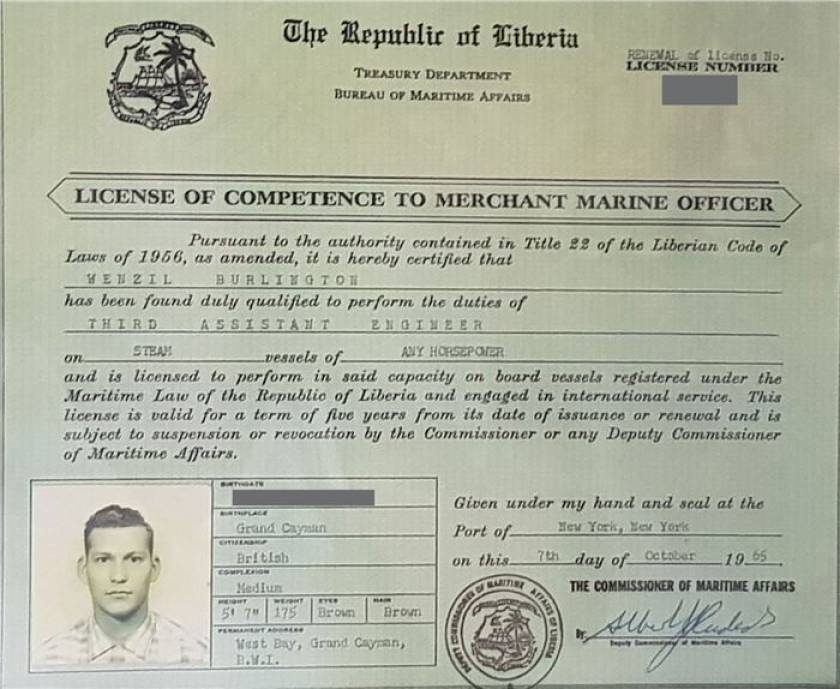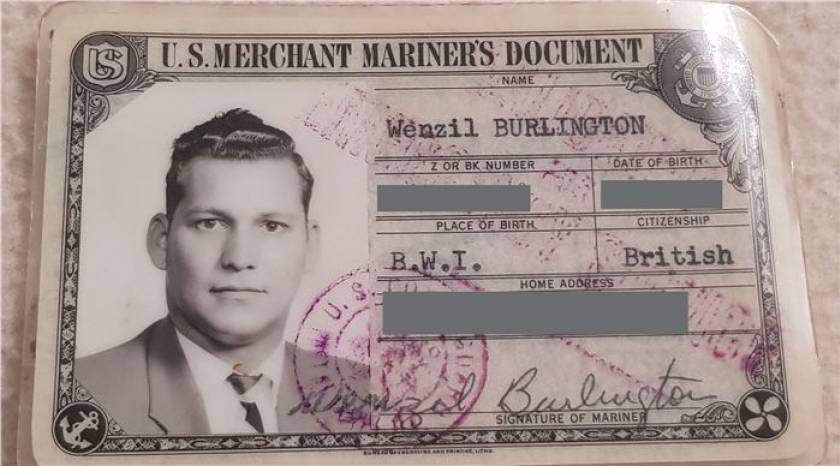From Child to Seafarer | Part One of Wenzil Burlington’s Epic Life

Grocery Store Fosters Friendship
One of my favorite parts of visiting Cayman is the way CaymanKindness seems to radiate from every corner of the island, sometimes in the most unexpected places. I can never guess where I’ll meet a new friend on the island, and the tale of how I met Wenzil Burlington is no different! On a quick trip to pick up groceries for our condo, I was looking for a stall to return my cart in the Foster’s parking lot. I wasn’t able to find one, so I started to push my way back to the store’s entrance when I heard a sweet voice holler, “Just leave it, they will come and get it.”
“Anywhere?” I asked confused.
“Yeah, they will come get it,” Wenzil assured me with an island ease.
So I parked my cart by a palm tree, and we started talking. I asked Wenzil if he had always lived in Cayman, and he replied, “All my life, except for thirteen years at sea.” After hearing that amazing answer, I knew I had to hear more, so I talked him into meeting up later. He suggested we chat at Burger King the following Monday.
On the day of our interview, Wenzil met me at the condos so I could follow him to Burger King. When we arrived, the inside was closed for remodeling, so we drove another couple of blocks down to Wendy’s on Wenzil’s suggestion. I got us both a coffee, and we dove right in.
Growing up Caymanian in the 30s & 40s
Wenzil Ebanks was born in 1935 in Grand Cayman. He said the island was quiet at that time, and most families were very poor due to the lack of economic opportunities. To his memory, there were only seven cars in all of West Bay. Without formally organized recreational activities, the kids had to create their own fun. Wenzil fondly recalled playing with a “wheeler”—a bicycle wheel with the spokes removed, which the kids would then roll and chase down the road with a stick. He also made tops with a guava tree and a nail (they called them gigs). I could tell he was pretty proud of them, as he explained that he’d pop one up on his thumbnail, and it would stay spinning for what seemed like forever. He also remembered making kites and flying them in pastures. Made to whistle, you could hear the kites “singing” a mile away.

“When I was growing up, if you wanted a dinner of conch, we’d just go to Barker’s, roll the pants leg up, walk out to sea, and get as many as you want. And go at night with a flashlight and you could get all the lobsters you want.”
He attended school until sixteen, in both his own home and other small, local school houses with other children of various ages. He recalled two of his teachers, Miss Alice Yates & Miss Ridley Powey, who went to Jamaica to qualify as teachers.
Turtling in the Miskito Cays
At sixteen, Wenzil went turtling in the Miskito Cays off the coast of Nicaragua. As he told stories of that time, I felt like I was immersed in a novel of epic tales. He narrated how they would set up huts on sandbars off the coast because the sand fleas were too much to bear ashore. “In those days the turtles were unbelievable. They’d swim right along side your boat. [There were] a lot of them.”
Wenzil explained the process of catching a turtle, which was far over my head, but it involved finding the perfect rock, anchoring your net, casting that net out, and then coming back the next day. On his last trip, he and his fellow crew members encountered a frightening “freak storm.” Wenzil barely made it back in his catboat, and he sadly recalled a couple of boats sinking—losing three of his friends in the storm. As I listened to more of Wenzil’s stories, near-misses seemed to be intertwined in many of this seaman’s journeys.
Swan Islands
After the loss of his three friends, Wenzil decided it was time to change course in his life. He joined up with Caymanian captains Harry and Donald Glidden on Swan Islands—two very small islands between Cayman and Honduras. During WWII, these islands were used as a weather station by the American military and post-war there were still a few Americans stationed there. Wenzil described the Gliddens as the caretakers of the island. During his stay there, he picked, shelled, and sun-dried coconuts that were bound for Tampa, Florida, on a sea route that originated in Costa Rica. Wenzil also worked, under the guidance of two Caymanian chefs, for the Americans who were stationed with the weather bureau on the islands after the war. In total there were only about twenty-six people on the island. At first Wenzil liked the remoteness, but after a while he said he needed to get away.
Banana Boats & Diplomas
Seeking more opportunity to roam, Wenzil decided to work on a banana boat that ran a circuit from Costa Rica to Tampa, hauling bananas to the US marketplace. He worked his first banana boat for a little over a year, and had another run-in with a large storm. With great respect, he recalled the hurricane they encountered between Cuba and the Swan Islands that they had to fight for three long days.
Also while aboard his first banana boat, he earned diplomas for diesel and gasoline through a correspondence course. He received lessons and submitted his coursework to class’s home base in Ohio.
The next job he took was on a bigger banana boat. “That was a nice boat! It was a millionaire’s yacht, and they converted her into a banana boat.” They’d pass through the Panama Canal every week. He started out as a messman, and he laughed as he told me, “We had a cook that could really make a mess. He would use two pots just to boil one egg—just to give me work to do.”
On this boat, he advanced from Messman to Oiler, a position where he’d oil, clean, and check the temperature of the engine. Then he moved from Oiler to Second Engineer—jobs he received because of his diplomas. It was also around this time that Wenzil change his last name from “Ebanks” to “Burlington,” which was originally his middle name. He said there were always mix-ups on the boats, especially with mail, because there were so many Ebanks at sea. He was tired of missing his letters, so he changed it on one of his stayovers at home.
While on a stayover in Tampa, waiting to board another banana boat, Wenzil experienced another traumatic event. While waiting, his visa was running short on time, and eventually he was told he had to leave the US, banana boat or no banana boat. The day he was supposed to catch a different ship out of the States, he went to get a haircut before boarding. While getting his trim, a man walked in and shot and killed the barber that was cutting his hair. Wenzil was so frightened that he jumped up out of the chair and ran as fast as he could all the way to the ship, with half a haircut and a towel still around his neck. (Another seafarer helped him straighten up his haircut later.) Eventually, he discovered the motive of the crime was infidelity, AND the banana boat he originally intended to catch sank near Trinidad. Two additional near-misses. As I was talking with Wenzil, I began to think it was somewhat of a miracle that he was sitting across from me!

Iron Ore Ships & Oil Tankers
Upon his return to Cayman, Wenzil got recruited to New York to work aboard a huge iron ore ship that ran back and forth between Venezuela and the east coast of the United States. This was during the 1960s, and “They were some of the biggest ships in the world.” He worked his way from Wiper, to Oiler Fireman, Junior Engineer, Junior III, and all the way up to Relief 1st. He studied fiercely on the ship for his next course, and passed his test for the 3rd engineer license in New York. When asked if he liked New York, Wenzil said he enjoyed it and would go to ball games to watch the Braves (when they were in town) if he had time in between ships.
After working the iron ore ships for some time, he moved on to working on oil tankers that went to the far east and middle east, including places like India, Pakistan, Aden, and Israel. He explained how they went through the Suez Canal in Egypt to get to everything in the far East. He sailed aboard many oil tankers throughout his career—at least seven or eight ships.
Wenzil then went from oil tankers to what he called Liberties, which hauled coal from the east coast of the US to Europe, including Germany, Holland, Spain. Before the age of thirty, he’d seen more of the world than most people see in a lifetime.

He got a green card in 1966, and went on to work on American ships through a mariner’s union. There was an opening for a pumpman, and a friend of his told him he’d only be asked three questions for the certification at the Coast Guard. He hadn’t studied for years, but decided to give it a shot. When he arrived, he ended up having to take a written exam with 180 questions—a far cry from the 3 he expected! But it turned out he underestimated himself, only missing 5 questions, and then getting 3 of the 5 he missed correct when verbally asked again later. The examiner was going to give him his 3rd Engineer License, but unfortunately those licenses were only given to American citizens. So instead he gave Wenzil the next best thing—a QMED Engineer license. Wenzil continued working at sea for another couple of years before settling at home in Cayman.
Want to know what brought Wenzil home to Cayman?
